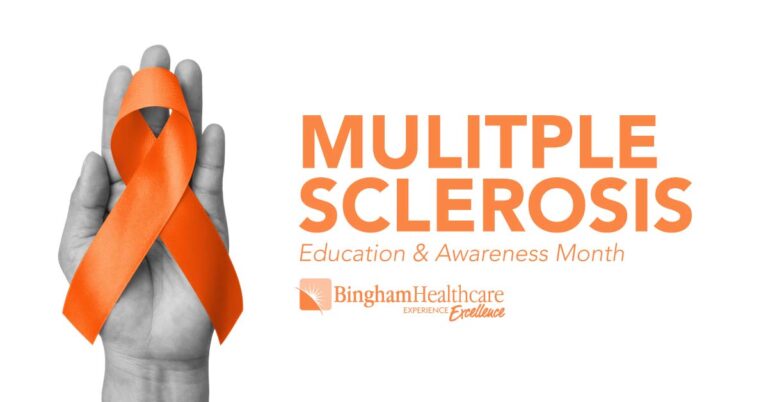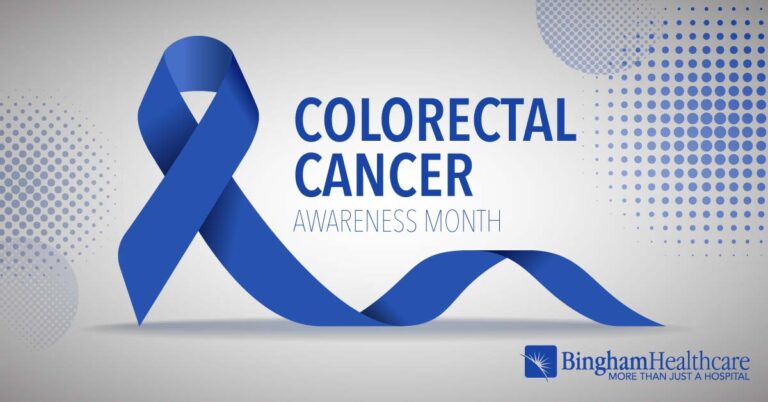
Skin Cancer: Early detection saves lives
More than 3.5 million cases of skin cancer are diagnosed each year and account for nearly half of all cancers in the U.S., according to the American Cancer Society (ACS). A staggering one in five people will develop skin cancer over the course of their lifetime. The rate of skin cancer is even higher in Idaho with so many year-round outdoor activities, the higher elevation which exposes people to more intense ultraviolet (UV) radiation, and the agricultural economy.
“As with most types of cancer, early detection saves lives,” says Dr. Adam D. Wray, a dermatologist and skin cancer specialist with Bingham Dermatology Center. Dr. Wray—who sees patients in Blackfoot, Pocatello, and, now, Soda Springs—highlights what you should know about skin cancer and the ABCDEs of what to look for, which just might save your life.
Free Skin Cancers Screenings Throughout May
May is Skin Cancer Awareness Month and Bingham Healthcare Dermatology wants to encourage annual skin screenings by offering free skin cancer screenings throughout the month of May. Call (208) 782-2930 for more information and to schedule your free screening.
Three Main Skin Cancer
Basal cell carcinomas, squamous cell carcinomas, and melanoma are the three primary types of skin cancers, and are distinguished by the types of skin cells in which they grow and their physical appearance. These three types of skin cancers have one thing in common though—you need to catch them early.
Approximately 75% of all skin cancer deaths are from melanoma, which is a cancer of the pigment producing cells in the skin, known as melanocytes. The ACS reported in 2019 that new cases of melanoma are expected to increase by about 5.7%, from 91,270 news cases in 2018 to a projected estimate of 96,479 new cases in 2019. This is not necessarily bad news. More diagnoses could mean that people are generally becoming more educated about the warning signs for melanoma, as well as getting screened. Perhaps even more hopeful is the death rate for the disease is expected to decrease by 22% in 2019.
Melanoma begins on the surface of the skin where it is easy to see and treat. In fact, this most serious type of skin cancer is always curable when it’s found in its very early stages. If given time to grow, melanoma can grow down into the skin, ultimately reaching the blood and lymphatic vessels, and spread around the body (metastasize), causing life-threatening illness.
Early Detection is Key
Once skin cancers get beyond their area of local destruction and into the bloodstream and lymph nodes, that’s when the trouble begins. “Ninety-nine percent of the game is knowing what your skin looks like normally,” says Dr. Wray. “By noticing changes in your skin, you can help your doctor find skin cancer before it turns deadly.”
What are the Signs and Symptoms of Skin Cancer?
Dr. Wray says, “You should examine your skin head-to-toe once a month, looking for any suspicious lesions.” Self-exams can help you identify potential skin cancers early, when they can almost always be completely cured. If you have any of these symptoms, see a doctor:
- Any change on your skin, especially in the size or color of a mole, growth, or spot, or a new growth (even if it has no color).
- Scaliness, oozing, bleeding, or a change in the way a bump or nodule looks.
- A sore that doesn’t heal.
- The spread of pigmentation (color) beyond its border, such as dark coloring that spreads past the edge of a mole or mark.
- A change in sensation, such as itchiness, tenderness, or pain.
Know the ABCDES of Skin Cancer
In addition, physicians have developed a strategy for early recognition of the disease—the ABCDEs—which help people to identify a potentially suspicious lesion.
A – Asymmetry. If you draw an imaginary line through the mole, both halves should be even.
B – Border. The borders of early skin cancer tend to be uneven.
C – Color. Seeing a number of colors on one mole is an early warning sign.
D – Diameter. Melanoma is usually larger in diameter than ¼ inch (6 mm)—the size of a pencil eraser.
E – Evolving. When a mole is evolving, see a doctor. Any changes in size, shape, color, elevation, or any new symptom, such as bleeding, itching or crusting, points to danger.
It’s vital to take precautions to make yourself less vulnerable to skin cancer. “Protecting yourself from overexposure to the sun is important year-round, not just during the summer months when you’re out on the boat or at the beach,” says Dr. Wray. “Even during Idaho’s winter, the sun can still penetrate through cloud cover and expose your skin to harmful UV-rays.” But, no matter how many steps you take to protect yourself against skin cancer, be sure to have a thorough examination by a doctor at least once a year, just to be on the safe side.
Prepare for the Summer. Get Your Skin Checked.
Your Eastern Idaho Skin Care Resources
If are experiencing any difficulties with your skin, or would like to schedule an appointment for a skin cancer screening, please reach out to one of our skincare specialists.
As an experienced dermatologist and skin cancer specialist, Dr. Wray of the Bingham Healthcare Dermatology has extensive training in pigmented and non-pigmented skin lesions, skin surgery, mole and wart removal, and skin cancer screenings. He enjoys spending time educating his patients about skin conditions and taking care of their needs by performing same-day biopsies, phototherapy, labs, and cosmetic procedures that enhance the skins look and feel.
To schedule a consultation with Dr. Wray, please call (208) 535-3637 in Idaho Falls, (208) 233-4455 in Pocatello, or (208) 782-2930 in Blackfoot.
Julia, a skincare specialist, has the knowledge and skills required to help you with all your skincare needs. Julia sees patients on the first floor of the Bingham Memorial Medical Plaza in Blackfoot and at the Physicians and Surgeons Clinic of Pocatello. To schedule a consultation, call her Blackfoot office at (208) 782-2930 or the Pocatello office at (208) 233-4455.
David’s current special interests are in medical dermatology—seeing patients for various medical skin diseases such as skin cancer, rashes, acne, spot checks, and full body skin checks. He has experience in minor outpatient procedures such as skin biopsies, skin cancer excisions, cryotherapy, and cyst/lipoma excisions.
To schedule a consultation with David, please call (208) 782-2930 in Blackfoot and Idaho Falls or (208) 233-4455 for Pocatello, Malad, and Soda Springs.
Our content is reviewed regularly and is updated when new and relevant evidence is made available. This information is neither intended nor implied to be a substitute for professional medical advice. Always seek the advice of your physician or other qualified health provider prior to starting any new treatment or with questions regarding a medical condition.
Return to Articles


